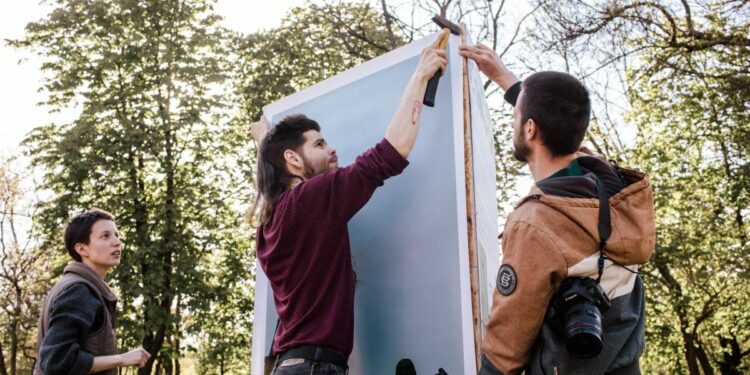ODESA, Ukraine — Viktoria Sibir remembered when she was called a Nazi for painting the words “Slava Ukraini,” or “Glory to Ukraine,” on her balcony, which overlooked Derybasivska Street, a pedestrian walkway that meanders through the heart of this port city.
A popular vacation spot for Russians prior to 2014, Odesa has long contended with its place in Ukraine and its perceived shared history with Russian royalty.
Catherine the Great is said to have founded the city, but many pro-Ukrainian residents highlight that it was in reality built by people of multiple nationalities and creeds — not just Russian.
Yet 10 years ago, many locals claimed that Sibir, an activist who had grown up in Odesa, was an outsider. Her pro-Ukrainian sentiment was unnatural in this Russian-speaking city. The local government even painted over her floral typography with white paint at one point, she said. Sibir, 30, repainted the words shortly thereafter.
Now, months into Russia’s invasion of Ukraine, hundreds of buildings have a simple Ukrainian flag painted on their walls, doors or gates. Odesa’s identity was once a blurry and complicated question, but each Russian missile that hits this city makes the answer clearer for its people: Odesa belongs to Ukraine and Europe.
The change has been years in the making.
Views began to shift in 2014 when the Euromaidan protests across Ukraine forced out the pro-Russian government, a moment followed by Russian proxies in the east seizing parts of the Donbas and Crimea. The crisis and conflict became a tipping point for Odesa: Were they Ukrainian, were they Russian — were they neither?
“Attitudes really changed during the time because in 2014 we saw the first clashes, street fighting and then the invasion, so people really changed their views and became more pro-Ukrainian,” said Sibir, whose painted balcony still celebrates Ukraine. “They started celebrating the balcony and at some point saying that it is a symbol. And now, again, the situation has gotten better.”
Odesa Mayor Gennadiy Trukhanov declared Odesa “a true European city” in an interview with NBC News. He emphasized that he had worked tirelessly to bolster Odesa’s ties to Western cities and denied that he has ever been sympathetic to the Kremlin, as his critics have alleged.
“They have tried to push this whole narrative that Odesa is a Russian city, a Russian satellite, that the mayor is pro-Russian,” Trukhanov said in his sprawling office, “and that is not the case.”










